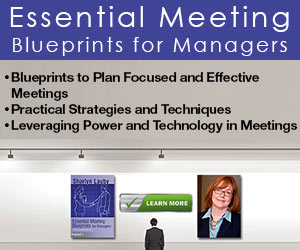Estimated reading time: 4 minutes
As a human resources professional, I’ve often had to talk with employees about their relationships (or lack thereof) with a coworker. And when you get to the part of the discussion where you ask, “Hey, what’s up with you and INSERT NAME HERE?”, the answer you might get is “It’s complicated.” Meaning the situation is more than a little complex.
After listening to Ryan Leak’s session at SHRM24 on “How to Work with Complicated People”, I wonder if what the employee really means is that they’re working with a complicated person. Leak is the CEO of a leadership development firm based in Texas and the author of the best-selling books “Chasing Failure” and Leveling Up”.
Now you’re first reaction might be assuming complicated = bad. I’m not sure that’s true. The word complicated means “consisting of many interconnecting parts or elements”. If you think about it, on some level, we’re all complicated individuals. I feel like that was the takeaway from Leak’s session. Actually, that was one of seven takeaways during the session. Here’s the entire list.
- Complicated is in the eye of the beholder. As I mentioned, if you look at the definition of complicated, we are all complicated beings. And complicated is not inherently bad. Recognizing that we’re all complicated is the first step in being able to work with others who are not like us.
- Consider your options. When it comes to working with others, we have options. We can 1) avoid, 2) change, 3) cancel, or 4) understand. Obviously, Leak’s session was focused on the last one – understand. But I do believe it’s important to realize that we do have options and think carefully about the best way to proceed. It could be tempting to avoid or cancel someone … but maybe that’s not the best long-term decision.
- Realize our own complications. This goes back to the first point. We might say to ourselves, “Oh, Leonard is very complicated.” Meanwhile, Leonard could be thinking the same thing about us. Becoming self-aware of what could be perceived as our own complications could be a valuable exercise in understanding others.
- Adjust (and share) our expectations. In our work relationships, we often have to rely on others. It’s okay to share our expectations. However, we do need to ask ourselves if our expectations are reasonable. Are we holding people to a standard that we can’t live up to?
- Leave margins for them to grow on us. Allow them to change. Sometimes the people we label as complicated are simply going through some stuff and need time. This links to considering your options. If we avoid or cancel someone, we might not see them grow and change. Same with trying to change others. It doesn’t allow them to grow into the best version of themselves.
- Use influence to understand the relationship and other relationships. We talked in a previous article about using influence to change the organization. We can also use influence to understand relationships. For example, if we’re part of a team, we can use influence to understand individual complications and team dynamics.
- Enjoy yourself. I took this comment from Leak’s session to be a piece of “Life’s too short.” wisdom. Yes, there are challenges in relationships that need addressing. But sometimes, a challenging relationship is simply an unpleasant moment … and it passes. So, in dealing with complicated people, are there places where you can agree, have a good time, and get stuff done.
In the working world, we are not going to be best friends with everyone. Frankly, we might not even like some of our coworkers. But that doesn’t mean we can’t effectively communicate and get work done. Together. Maybe stepping back and considering the complications is a way to positively manage working relationships.
Image captured by Sharlyn Lauby while at the Wynwood Art District in Miami, FL




